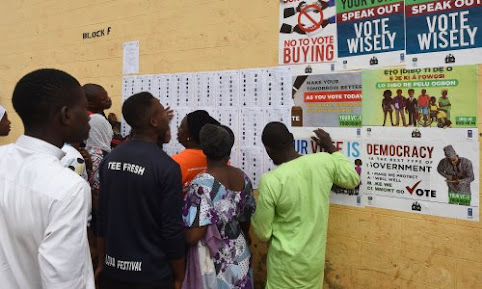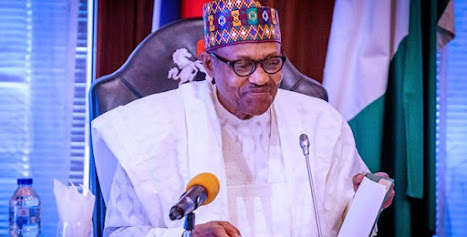By Emeka Alex Duru
Weeks to
the official flag-off of the 2023 presidential campaigns, signs of what to come
are becoming clearer. And disturbing! Nigerians may be in for a rough deal,
perhaps, worse than they are having, if the morning, as they say, determines
the day. Mudslinging and ethnic recriminations may dominate public engagements,
in place of issue-based campaigns.
Presidential
campaigns are carnivals of sorts. They are occasions for glamour, demonstration
of eloquence and style. But besides the side shows, they are moments of
stock-taking, reflections and defining the future of the country. That is why
presidential debates and manifesto nights are usually taken seriously in
advanced democracies.
They are
avenues for the candidates to advertise themselves and market their parties to
the people and tell them what to expect from them if voted to power. Whatever
declarations made by the standard-bearers on such events, are taken as
yardsticks upon which they would be assessed while in office. For the
incumbent, they provide opportunities to brandish their achievements, while the
opposition, cash in on the window to expose the lapses of the party in power
and project itself as the alternative.
An
incidence in the 1980 American presidential election offers a good illustration
on this. In the final week of campaign between the candidate of ruling
Democratic Party, President Jimmy Carter and Republican nominee, Ronald Reagan,
the two were put on debate. In course of the exercise, Reagan posed what has
become one of the most important campaign questions of all time: “Are you
better off today than you were four years ago?” Carter’s answer was a
resounding “NO”. That response was what the voters needed to deny him
re-election but America as country won in the long run. That is the beauty of
presidential campaign.
As the
Independent National Electoral Commission gets set to lift the seal on the
campaigns, you would expect the presidential candidates of the leading
political parties in the country and their foot soldiers to be addressing their
minds to such important questions. The presidency is the hardest job in the
world, says American essayist, John Dickerson, in his piece on the White House.
He prescribes that when the national fabric rends, the president will
administer needle and thread, or at least reach for the sewing box of unity.
This is a big lesson for those aspiring for the office.
But that
is not what we are getting here, so far. It is rather campaigns of calumny and
regurgitation of primordial sentiments. Resort to ethnicity is more dominant.
In place of interrogating and analysisng the contents of pronouncements by the
presidential candidates, their persons and pedigrees, issues of regions of
birth are being played up, obviously to divide the people.
In Lagos
for instance, the campaigns are drifting from the challenges facing the country
to such fleeting topic as the ownership of the city. In the process, drinking
joint banters or off-hand jibes by loose minds, are being cited as reasons to
profile others and accuse them of attempting to take over the state. Since the
emergence of the Labour Party (LP) presidential candidate, Peter Obi, and the
momentum he has been generating especially among the youths and down trodden
Nigerians, there have been waves of insinuations on the Igbo for “plotting to
covet Lagos state”. Suddenly, the allegation of the Igbo purporting that “Lagos
is no man’s land” has been on the rise and penetrating. Supporters of the All
Progressives Congress (APC) candidate, Bola Tinubu, are firing relentlessly on
this.
But that
is a ruse. There is no space that can be described as “no man’s land”. Every
entity has an indigenous population with certain claims of ownership or
autochthony. Lagos cannot be an exception. Regardless the length of residence
of an Igbo or any other non-indigene in Lagos, he/she remains a visitor.
Next to
this is the lazy recollection of subjective narratives of the First Republic
politics featuring the hackneyed mistrust between Dr. Nnamdi Azikiwe and Chief
Obafemi Awolowo, for which some Igbo and Yoruba seem sworn not to accept one
another. The idea behind raking up these baseless topics is to further drive
the wedge between the people from the two regions. The agenda may appear simple
on the surface. But most genocides and ethnic cleansings in history, had
started by casual profiling of the victims. That is the reason why these
reckless expressions of sordid sentiments, should not be taken lightly
Importantly,
they are not issues that should bother Nigerians, presently. The candidates need
to tell us how they intend to tackle the challenges facing the country. These
are matters of failed governance, infrastructure collapse, insecurity, youth
unemployment, depreciating value of the national currency, endemic strikes in
the institutions of higher learning and restiveness in the component units of
the country.
The
United Nations Educational, Scientific and Cultural Organisation (UNESCO), just
released a data the other day, which puts Nigeria as having about 20 million
out-of-school children. The rate before was between 10.5 and 13.5 million. But
with insecurity and kidnapping of school children, some parents are scared of
sending their wards to school in some parts of the country. The present
estimate is worrisome.
Elsewhere,
though there seems a disagreement on an earlier report by a global terrorism
research/analysis group, Jihad Analytics (JA), which placed Nigeria as the
second most terrorised/attacked country, and that of fact-check which quotes
the Global Terrorism Index (GTI) as saying that the country is sixth in the
league, the fact is that the climate of insecurity remains high, here. Farmers
can no longer access their farms, resulting to food insecurity in the land. In
other indices of development, we are not faring better. Nigeria remains the
Poverty capital of the world since 2018.
Nigeria
tops the list of fragile, failing states and now the most stressful country to
live in, according to the stress level index. For seven months running,
students in public universities have been out of school due to the face-off
between their teachers under the aegis of the Academic Staff Union of
Universities and the Federal government over unfulfilled agreements.
Some
Nigerians abducted in the Abuja-Kaduna-bound train on March 28, are still held
by their captors, while the government looks the other way.
These are
the issues that should matter in the 2023 debate. The task ahead is enormous
and not the trivial issues of the Igbo or any group trying to take over Lagos
or indeed any state in the country for that matter. Nigerians do not have the
time for such idle talk.
*Duru is a commentator on
public issues



















